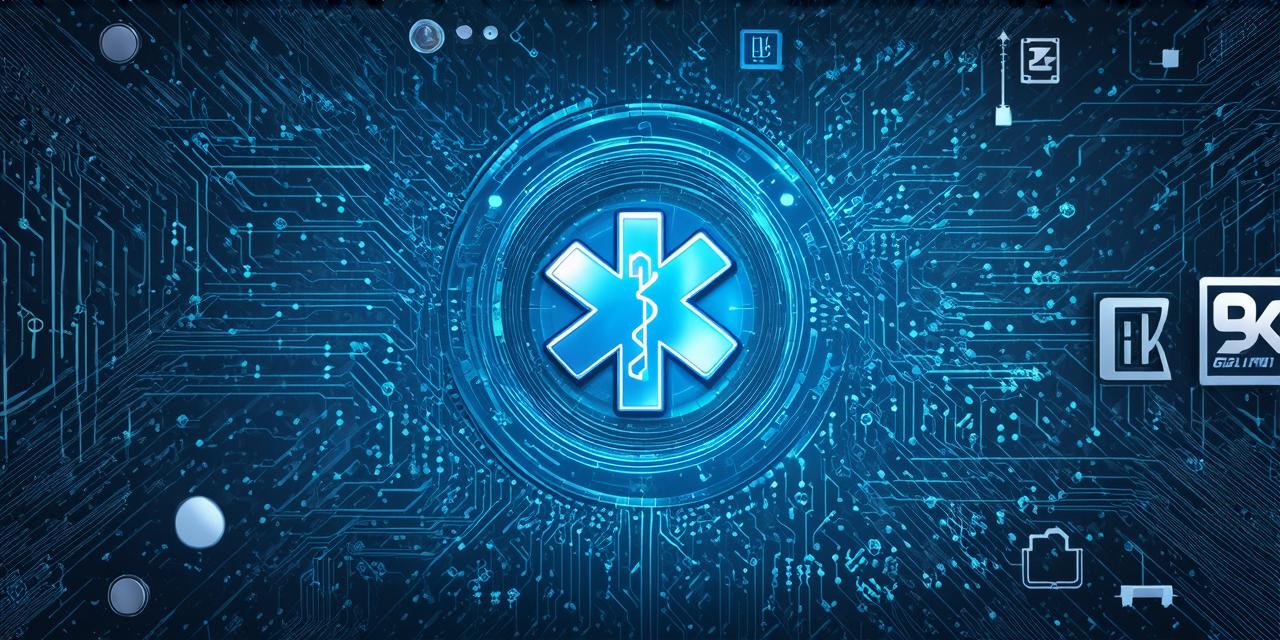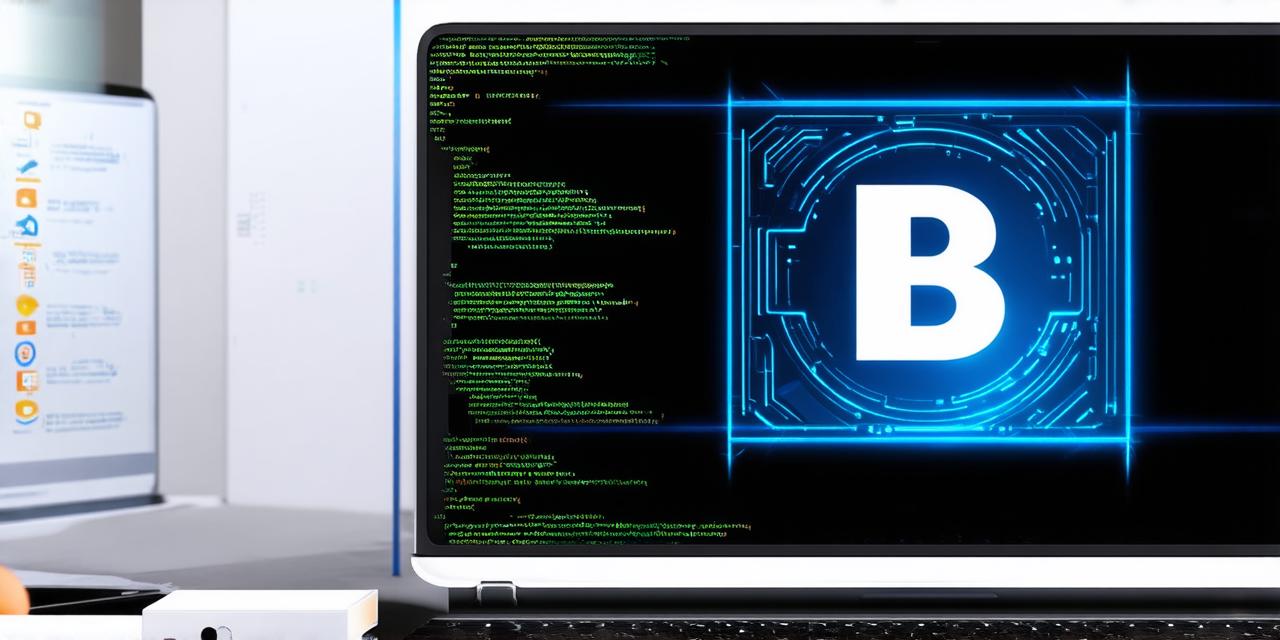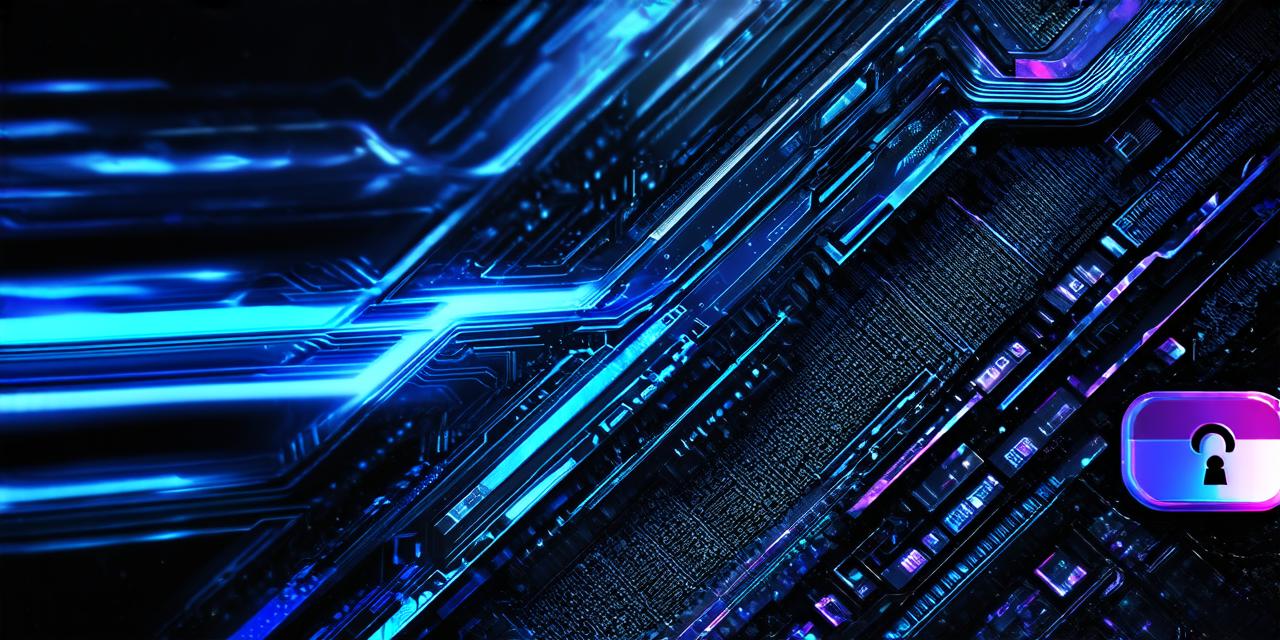I. Introduction
A. Explanation of Blockchain Technology
Blockchain technology is a decentralized and secure way of storing, transferring, and sharing data. It is built on a distributed ledger that records all transactions and is maintained by a network of participants who validate and verify each transaction. This makes it resistant to tampering, hacking, and fraud, making it ideal for industries that deal with sensitive information such as healthcare.
B. Importance of Healthcare Industry Disruption
The healthcare industry is facing many challenges, including high costs, inefficiencies, and poor patient outcomes. Blockchain technology offers a solution to these problems by providing secure, transparent, and decentralized solutions. It has the potential to improve patient outcomes, reduce costs, and increase efficiency.
C. Purpose of the Article
The purpose of this article is to explore how blockchain technology can disrupt healthcare, with a focus on case studies and real-life examples that illustrate its potential benefits. We will also discuss the ethical considerations surrounding blockchain in healthcare and how they can be addressed.
II. Use Cases for Blockchain Technology in Healthcare
A. Clinical Trials Management
Blockchain technology can be used to manage clinical trials by securely storing data, tracking patient participation, and ensuring transparency and accountability. This can improve the efficiency and accuracy of clinical trials, reducing costs and improving patient outcomes.
B. Medical Records Management

Blockchain technology can be used to store medical records securely and ensure their integrity and authenticity. This can reduce administrative costs, improve data sharing and interoperability, and enhance patient privacy and security.
C. Drug Supply Chain Management
Blockchain technology can be used to track drugs from manufacturer to patient, ensuring the authenticity, safety, and efficacy of medications. This can prevent counterfeiting and diversion, reduce costs, and improve patient outcomes.
D. Health Insurance Administration
Blockchain technology can be used to streamline health insurance administration by securely storing data, reducing fraud and errors, and improving interoperability between insurers and providers. This can reduce costs and improve patient outcomes.
E. Telemedicine and Remote Patient Monitoring
Blockchain technology can be used to securely store and share data in telemedicine and remote patient monitoring, ensuring privacy and security. This can improve access to healthcare services and enhance patient outcomes.
F. Vaccine Distribution
Blockchain technology can be used to track vaccines from manufacturer to patient, ensuring the authenticity, safety, and efficacy of vaccines. This can prevent counterfeiting and diversion, reduce costs, and improve public health outcomes.
III. Benefits of Blockchain Technology in Healthcare
A. Security
Blockchain technology provides a secure way of storing and sharing data, making it resistant to tampering, hacking, and fraud. This can enhance patient privacy and security, reduce administrative costs, and improve compliance with regulations.
B. Transparency
Blockchain technology provides transparency by ensuring the integrity and authenticity of data. This can improve trust between patients, providers, and insurers, and enhance patient engagement and empowerment.
C. Efficiency
Blockchain technology can automate many tasks in healthcare, reducing administrative costs and improving efficiency. This can free up time for healthcare providers to focus on patient care, and improve the speed and accuracy of decision-making.
D. Cost Savings
Blockchain technology can reduce costs by eliminating intermediaries, reducing fraud and errors, and improving data sharing and interoperability. This can lead to significant cost savings for patients, providers, and insurers.
E. Improved Patient Outcomes
Blockchain technology has the potential to improve patient outcomes by enhancing access to healthcare services, reducing administrative costs, improving data sharing and interoperability, and ensuring the authenticity and safety of medications and vaccines.
IV. Case Studies and Real-Life Examples
A. IBM Watson for Oncology
IBM Watson for Oncology is a blockchain-powered platform that uses artificial intelligence to help oncologists diagnose and treat cancer patients. It securely stores patient data, including medical records and genetic information, and provides personalized treatment recommendations based on this data. This has improved the accuracy and speed of diagnosis and treatment, leading to better patient outcomes.
B. MediLedger Project
The MediLedger Project is a blockchain-powered initiative that aims to improve the safety and efficiency of the drug supply chain. It securely tracks drugs from manufacturer to patient, ensuring the authenticity, safety, and efficacy of medications. This has reduced counterfeiting and diversion, improved compliance with regulations, and enhanced patient outcomes.
C. Gem by Nestle
Gem by Nestle is a blockchain-powered platform that uses digital identity verification to ensure the authenticity and safety of food products. It securely stores data on product origin, manufacturing processes, and distribution networks, providing transparency and accountability throughout the supply chain. This has improved food safety, reduced waste, and enhanced consumer trust.
D. MedicalChain
MedicalChain is a blockchain-powered platform that uses digital identity verification to ensure the authenticity and safety of medical devices. It securely stores data on device origin, manufacturing processes, and distribution networks, providing transparency and accountability throughout the supply chain. This has improved patient outcomes by ensuring the safety and efficacy of medical devices.
V. Ethical Considerations Surrounding Blockchain in Healthcare
A. Privacy and Security
Blockchain technology raises privacy and security concerns, as it involves storing sensitive data securely. It is important to ensure that patient data is protected from unauthorized access or use, and that data sharing and interoperability are conducted in a secure and ethical manner.
B. Data Ownership and Control
Blockchain technology raises questions about data ownership and control, as it involves storing data on a decentralized network. It is important to ensure that patients have control over their own data, and that data sharing and interoperability are conducted in a way that respects patient privacy and autonomy.
C. Regulatory Compliance
Blockchain technology raises regulatory compliance concerns, as it involves storing data on a decentralized network. It is important to ensure that blockchain-powered platforms comply with relevant regulations and standards, and that they are subject to appropriate oversight and enforcement mechanisms.
VI. Summary
Blockchain technology has the potential to disrupt healthcare by providing secure, transparent, and efficient solutions to many of the challenges facing the industry. By using blockchain technology in clinical trials management, medical records management, drug supply chain management, health insurance administration, telemedicine and remote patient monitoring, vaccine distribution, and other applications, healthcare organizations can improve patient outcomes, reduce costs, and enhance efficiency. However, it is important to address the ethical considerations surrounding blockchain in healthcare, including privacy and security, data ownership and control, and regulatory compliance, to ensure that blockchain-powered platforms are developed and deployed in a way that benefits patients, providers, and insurers alike.



